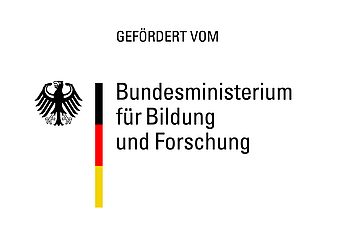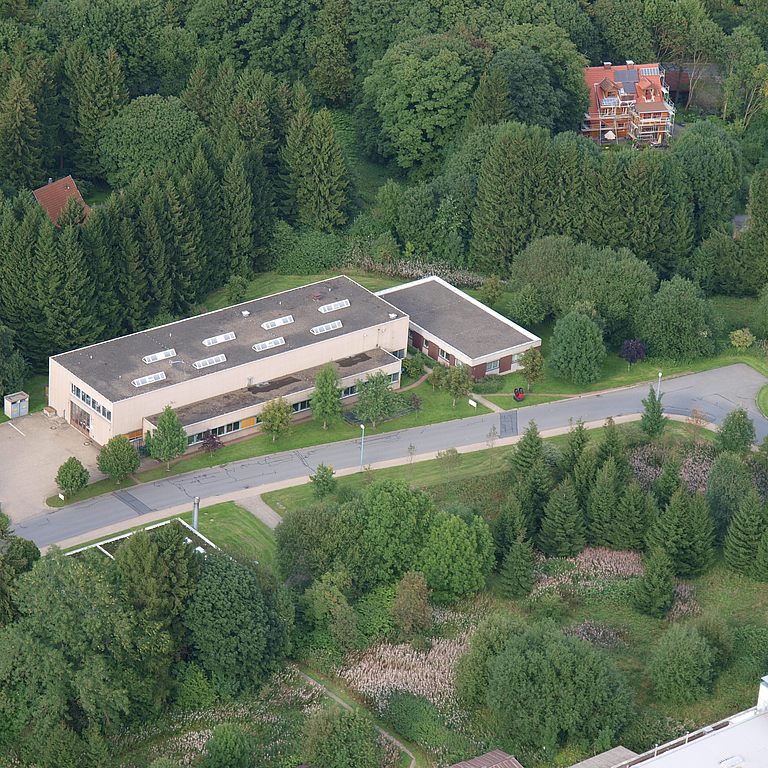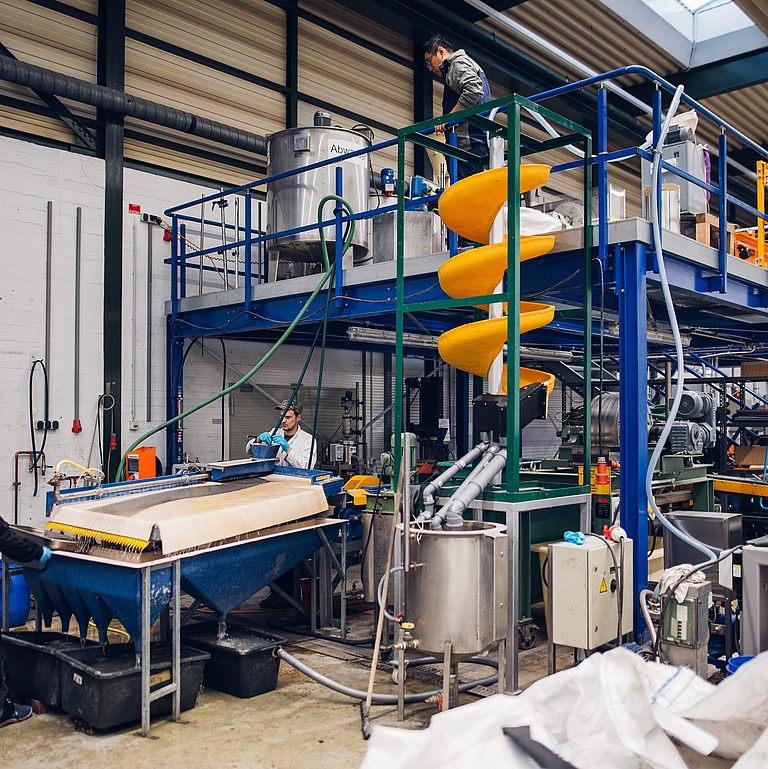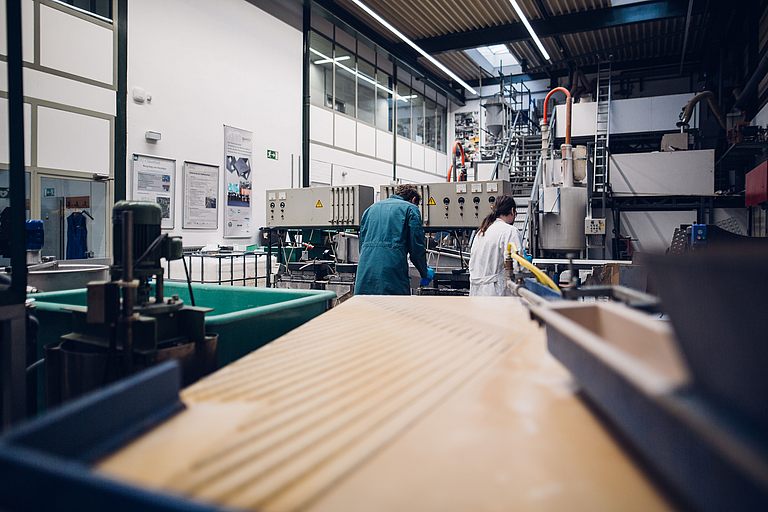RecTecKA - Recycling of technology metals from the dismantling of nuclear facilities under consideration of radiation protection regulations
Project description:
In the context of the phase-out of nuclear energy, not only the radioactive residues have to be disposed of. The partly technologically highly upgraded plant components in the non-nuclear area must also be dismantled and recycled. The main focus is first of all the identification and pre-selection of particularly interesting plant parts and components, which are to be examined more closely in the course of the research project.
For data collection, interviews will be conducted at the technical processing level of the nuclear power plant operator. It is to be assumed that the future industrial recycling process will be connected to the official release procedure according to the Radiation Protection Ordinance. In the further course of the project, a survey of the material composition and a survey of the inventory of valuable technology metals such as cobalt, tin, silver, palladium, gold and rhodium will follow. Extensive dismantling studies and investigations will be carried out on the mechanical processing of components released for radiation protection, which represents a technological advancement of existing recycling practices. An important project outcome will be the compilation of recycling routes for material groups containing relevant special alloys and technology metals. This will include the determination of realistic end-of-life recycling potentials and a classification into recyclable material groups. This result represents an advance in the state of the art of science, as such investigations have not been carried out so far.
In close coordination with all partners involved, an economic feasibility study comparing costs and revenues is carried out for all plant components considered. The costs also explicitly take into account any release processes that may need to be optimised. For the acceptance of the project results, additional radiological considerations are carried out in connection with the release. Last but not least, the complete life cycle assessment puts the research result into an overall ecological and social context. This is essential, since finally an estimation of the ecological and economic potential of the utilization of technology metals from the dismantling of NPPs in Germany is planned.
This project is being worked on in our two working groups on process engineering for the recycling of complex wastes from infrastructures and on material flow management
Collaborative partners:
- Öko-Institut (project coordinator)
- EnBW Kernkraft GmbH
- Electrocycling GmbH
- Institute for Processing, Landfill Technology and Geomechanics


Subsidy reference number: 15S9428B



![[Translate to English:] [Translate to English:]](/fileadmin/_processed_/0/e/csm_duesenfeld_jun18_098_lowres_dd33377237.jpg)
![[Translate to English:] [Translate to English:]](/fileadmin/_processed_/d/3/csm_duesenfeld_jun18_108_lowres_31e25a0a0c.jpg)
![[Translate to English:] [Translate to English:]](/fileadmin/_processed_/3/0/csm_PA8A0066_25a6616405.jpg)
![[Translate to English:] [Translate to English:]](/fileadmin/_processed_/c/d/csm_PA8A6326_b23db2d7fe.jpg)
![[Translate to English:] [Translate to English:]](/fileadmin/_processed_/8/2/csm_PA8A6373_333262f3c8.jpg)
![[Translate to English:] [Translate to English:]](/fileadmin/_processed_/7/f/csm_PA8A9524_5b4d7e23a0.jpg)
![[Translate to English:] [Translate to English:]](/fileadmin/_processed_/3/3/csm_PA8A9545_bd53136455.jpg)
![[Translate to English:] [Translate to English:]](/fileadmin/_processed_/8/d/csm_PA8A9673_2c9b95d9b4.jpg)